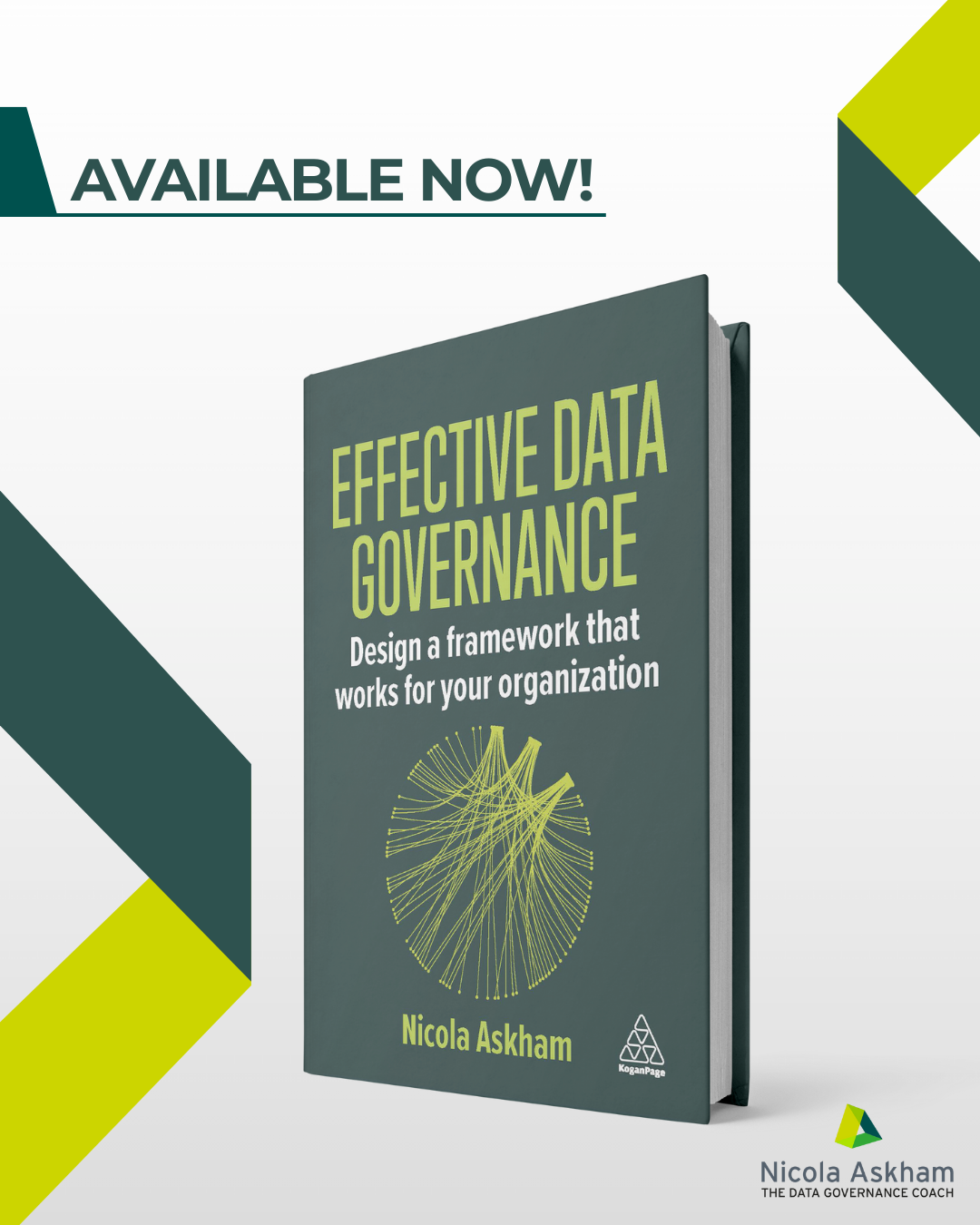Data Governance Interview - Dr. Irina Steenbeek
/Irina is a dedicated Senior Data Management, Financial and IT Professional with 15+ years of extensive experience in data management, software implementation, financial and business control, and project management. During the past year, she has also immersed herself in data science. She sees that big data and data science have a huge potential for business development. These areas are crucial for the development of data management, including data governance.
How long have you been working in Data Governance?
It has been over 7 years now, since I first started working in data management. During this time, I have also engaged a lot in Data Governance, mostly through hands-on experience in SMEs and large international organizations.
Some people view Data Governance as an unusual career choice, would you mind sharing how you got into this area of work?
For me, this career path started quite organically as a result of several challenges in related areas. The first challenge was to create an automated solution for management accounting reporting within an organization. During the development of an organization-wide reporting system, I came across various issues, such as massive numbers of non-reconcilable Excel reports and the presence of three separate reporting platforms. This lead to the implementation of a data warehouse in this company. This implementation also highlighted data quality issues. This was not all, but it started a long journey towards the management of the data.
What characteristics do you have that make you successful at Data Governance and why?
I think that well-developed communication skills always come in handy. Establishing a common business language between your colleagues and partners, as well as clear communication with the stakeholders helps a lot if you want to set up a good data management structure. A data management function connects various departments of a company, and it is great if you can get practical support of top management, or work in an environment and culture that can enable you to execute your function in the most effective way possible.
A while ago I have written a blog on this topic: ‘Am I a successful Data Manager’ Feel free to consult it for more tips that I have to share.
Are there any particular books or resources that you would recommend as useful support for those starting out in Data Governance?
Recently I came across The Practitioner’s Guide to Data Quality Improvement by David Loshin, published by Morgan Kaufmann in 2010. I think this book is quite useful for DQ professionals.
But in general, from my practical experience of working closely with business stakeholders, I have reached one conclusion: people are not interested to know what they need to do. They are eager to know how to do what is expected from them.
At an early stage of my professional development I used DAMA DM-BOK as my main reference point. And of course, I have done a fair share of internet browsing and analyzed the materials I could find, originating from numerous sources. So far, I haven’t been able to find any practical guide that could help starting data management professionals.
This experience brought me to an idea to write my own ‘The Data Management Cookbook’, a brief summary book on Data Management, which is here. The extended ‘Do It Yourself’ Data Management guide will be available in June 2018.
What is the biggest challenge you have ever faced in a Data Governance implementation?
There were several, it is difficult to say which one was the biggest or most important. The first one is finding your own way to implementation of data management, and figuring out where to start. The second one is convincing data owners that they have to take on responsibility for their data. And the third one is more technical: the investigation of data quality issues caused by applications.
Is there a company or industry you would particularly like to help implement Data Governance for and why?
In my career, I have worked in all kinds of companies, large and small. All in all, I think I prefer small and medium businesses to large and famous multinationals. Why? I know it doesn’t sound very ambitious. Smaller companies feel more like a ‘family’. And I appreciate this a lot, as this feeling creates a great work environment. You know everyone and you can get things done quickly and efficiently. It is easier to involve your colleagues in all the processes, which is crucial for successful data management. Even if the resources are limited, you can still deliver tangible results in a short period of time.
What single piece of advice would you give someone just starting out in Data Governance?
You do not set up data management just for fun. You do it because you have certain
needs, a certain goal will drive you to do it. GDPR or data quality are the best examples. My advice is to first get a clear picture what your goal, your driver is. As soon as you know the direction you should be working in, it will be easier to figure out which components will need most of your attention and in which order you should proceed.
Finally, I wondered if you could share a memorable data governance experience (either humorous or challenging)?
When implementing data management, you have to ensure collaboration between various stakeholders. These are people with different interests, needs and tempers, and you are the one who has to combine them all into one effective working system. One of the most memorable moments in my career was a question of one of such stakeholders: ‘Where do you get so much patience to permanently stay calm, have good relationships with all of us and still keep going?’. I guess only a data manager would know. :-)








